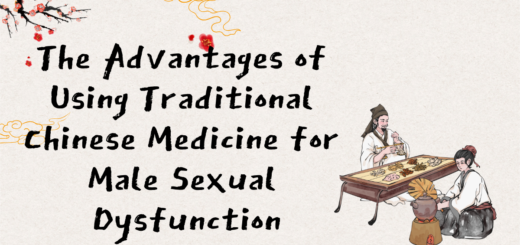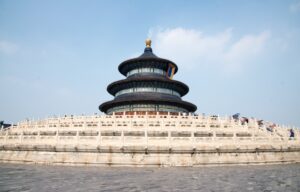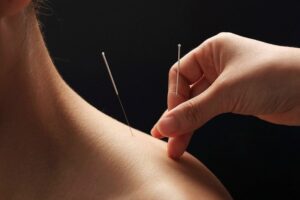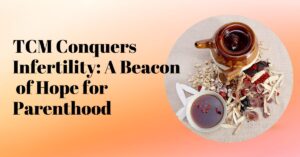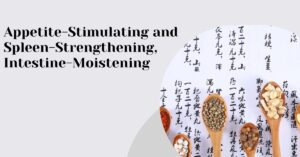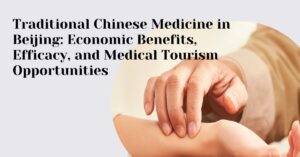The Integration of Traditional Chinese Medicine (TCM) and Western Medicine in the Treatment of Common Complex Diseases and Its Impact on Quality of Life

With the advancement of medical technology, the integration of Traditional Chinese Medicine (TCM) and Western medicine has gained increasing attention, particularly in managing chronic and complex diseases such as neurological disorders, cardiovascular diseases, and orthopedic rehabilitation. This combined approach leverages the strengths of both medical systems, offering a more comprehensive treatment that can improve patients’ quality of life. Below is a detailed discussion on the application of integrated medicine in treating multiple sclerosis, Alzheimer’s disease, chronic kidney disease, cardiovascular diseases, orthopedic rehabilitation, and polio, along with its impact on the quality of life.
1. Multiple Sclerosis (MS)
TCM Approach:
In treating multiple sclerosis, TCM focuses on regulating Qi and blood, promoting smooth circulation through the meridians to alleviate symptoms and restore neurological functions. Acupuncture and Tuina (Chinese therapeutic massage) are particularly effective in relieving muscle stiffness and pain, helping patients regain mobility. Additionally, TCM improves organ functions and reduces fatigue, balance issues, and other common symptoms of MS.
Western Medicine Approach:
Western medicine treats MS primarily with immunomodulators, corticosteroids, and anti-inflammatory drugs to reduce inflammation in the central nervous system and control disease progression. Physical therapy is also widely used to help patients restore motor function and slow muscle atrophy.
Effect of Combined Treatment:
Integrating TCM and Western medicine in treating MS allows Western medicine to quickly control the disease, while TCM enhances the immune system and mitigates drug side effects, slowing disease progression. This combination not only reduces mobility impairments but also effectively alleviates fatigue and improves psychological well-being, thus enhancing overall quality of life.
2. Alzheimer’s Disease
TCM Approach:
TCM in Alzheimer’s treatment emphasizes improving Qi and blood flow to the brain and enhancing mental clarity. Acupuncture, Tuina, and dietary therapies can help alleviate cognitive decline and promote memory retention. TCM also focuses on regulating emotions to stabilize patients’ mental state.
Western Medicine Approach:
Western medicine primarily uses drugs to regulate neurotransmitter function, slowing cognitive deterioration. Psychological support and caregiving are crucial in helping patients maintain their daily living skills.
Effect of Combined Treatment:
By combining Western drugs and TCM therapies, Alzheimer’s patients can better control their symptoms, with TCM helping to slow memory and cognitive decline. Additionally, TCM plays a significant role in reducing anxiety and improving sleep, which are common issues in Alzheimer’s care, while mitigating long-term drug side effects.
3. Chronic Kidney Disease (CKD)
TCM Approach:
TCM treatment for CKD focuses on strengthening kidney function through the principle of “nourishing the kidney and consolidating the root.” TCM improves metabolic and detoxification functions, helping patients alleviate symptoms like fatigue, edema, and lower back pain, while slowing the progression of kidney function decline.
Western Medicine Approach:
Western medicine primarily controls underlying conditions like hypertension and diabetes to delay kidney deterioration. In advanced stages, dialysis or kidney transplantation becomes necessary, though long-term dialysis can lead to nutritional imbalances and immune system disruptions.
Effect of Combined Treatment:
In treating CKD, combining TCM and Western medicine allows drugs to control disease progression while TCM therapies relieve fatigue and associated complications, delaying the need for dialysis. TCM’s holistic approach also helps improve patients’ immune function, providing significant benefits in terms of overall recovery and quality of life.
4. Cardiovascular Diseases
TCM Approach:
TCM addresses cardiovascular diseases by promoting Qi and blood flow, unblocking meridians, and preventing stagnation, which helps improve blood circulation and reduces the risk of hypertension and atherosclerosis. TCM also emphasizes emotional balance to mitigate the negative effects of stress and anxiety on heart health.
Western Medicine Approach:
Western medicine uses statins, blood pressure medications, and anticoagulants to control blood pressure, lower cholesterol, and prevent blood clots. In severe cases, surgical interventions such as stenting or bypass surgery are used to restore blood flow to the heart.
Effect of Combined Treatment:
In cardiovascular disease treatment, integrating Western medicine with TCM helps manage the disease more effectively. Western drugs can quickly stabilize the condition, while TCM therapies help reduce drug side effects, improve heart function, and prevent disease recurrence. The combination can significantly lower the risk of heart attacks and improve the overall health and longevity of patients.
5. Orthopedic Rehabilitation
TCM Approach:
TCM plays a crucial role in orthopedic rehabilitation, particularly in bone fractures, soft tissue injuries, and arthritis. Acupuncture, Tuina, and TCM physical therapy can promote the healing of bones and muscles, reduce inflammation and pain, and accelerate the recovery process. TCM also emphasizes holistic body regulation to enhance the body’s blood supply to bones and improve immune function.
Western Medicine Approach:
Western medicine uses physical therapy, surgical repair, and medication to restore bone structure and function. Surgery can quickly repair serious injuries, but the recovery period can be long, and complications may arise post-surgery. Physical therapy is used to restore joint flexibility and muscle strength, but it requires consistent long-term effort.
Effect of Combined Treatment:
In orthopedic rehabilitation, integrating TCM with Western medicine significantly shortens the recovery time. TCM therapies accelerate wound healing, relieve pain and swelling, and Western medicine’s physical therapy and surgical repair restore bone and muscle structures. This combination greatly improves recovery outcomes, enabling patients to return to normal activities more quickly.
6. Poliomyelitis
TCM Approach:
For polio patients, who often suffer from muscle weakness, joint stiffness, and mobility issues, TCM focuses on promoting circulation and energy flow to enhance muscle and nerve recovery. Acupuncture, Tuina, and Qigong help improve mobility and strengthen the immune system, reducing the risk of relapse.
Western Medicine Approach:
Western medicine’s approach to polio primarily focuses on prevention through vaccination and managing post-polio symptoms through rehabilitation, orthotic devices, and surgery to improve mobility. However, due to the difficulty in fully reversing nerve damage, patients often suffer from long-term disability.
Effect of Combined Treatment:
By integrating TCM and Western medicine in treating post-polio syndrome, patients benefit from a more comprehensive rehabilitation plan. Western rehabilitation helps restore some functionality in the short term, while TCM’s long-term regulation promotes muscle and nerve regeneration, improving mobility and overall quality of life.
Conclusion
Integrating TCM and Western medicine in the treatment of complex diseases offers tremendous potential, especially in conditions like multiple sclerosis, Alzheimer’s, chronic kidney disease, cardiovascular diseases, orthopedic rehabilitation, and poliomyelitis. This combination not only controls the disease but also greatly improves patients’ quality of life by slowing disease progression and reducing drug dependency. The holistic approach of TCM, combined with Western medicine’s precision, provides patients with more diverse treatment options, improving recovery outcomes and enhancing well-being throughout the treatment process.


